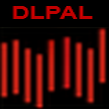
A new related paper has been added to:
#14 – Momentum Effect in Stocks
#25 – Small Capitalization Stocks Premium
#26 – Value (Book-to-Market) Anomaly
Authors: Cakici, Tang, Yan
Title: Do the Size, Value, and Momentum Factors Drive Stock Returns in Emerging Markets?
Link: http://papers.ssrn.com/sol3/papers.cfm?abstract_id=2727257
Abstract:
This paper investigates the size, value and momentum effects in 18 emerging stock markets during the period 1990−2013.We find that size and momentum strategies generally fail to generate superior returns in emerging markets. The value effect exists in all markets except Brazil, and it is robust to different periods and market conditions. Value premiums tend to move positively together across different markets, and such inter-market co-movements increase overtime and during the global financial crisis.
Notable quotations from the academic research paper:
"Emerging markets usually have slower information diffusion, higher transaction costs, lower institutional investor participation than developed markets. Retail investors in emerging markets tend to passively hold suboptimal portfolios due to underdeveloped financial markets. These market frictions intertwined with the mechanisms underlying the value and momentum premiums can either exacerbate or dampen the value and momentum effects on cross-sectional variation in expected stock returns.
Following Fama and French (1993), we construct factor mimicking portfolios based on size, book-to-market equity ratio, and momentum, and calculate monthly factors with respect to size (SMB), value (HML), and momentum (UMD) for individual markets. 2 We find that during the period 1990 − 2013, the size effect does not exist in all emerging markets except China. In contrast, the average SMB is negative in 14 of 18 markets, ranging from –0.10% per month in Czech Republic to –1.02% per month in Hungary. The average HML is always positive in a range from 0.41% per month in Brazil to 2.34% per month in India, and it is statistically significant in all markets except Brazil. On the other hand, the momentum effect, which tends to be stronger than the size and value effects in the U.S. and other developed markets, is surprisingly weak in most emerging markets. Although the average UMD is positive in 14 markets with a minimum of 0.05% per month in Malaysia and a maximum of 1.99% per month in India, it is statistically significant only in Chile (with a mean HML of 0.74%) and India (with a mean HML of 2.34% per month).
Next, we correlate value and momentum factors. We show that they often move inversely together both within the same market and across different markets. Moreover, the negative correlations between the value and momentum factors are stronger for big stocks than for small stocks and in the periods when the U.S. stock market posts positive returns than in the periods of negative U.S. stock market returns. On the other hand, the value factor tends to move positively together across different markets, so does the momentum factor.
Finally, we perform subperiod analyses. We find that the value strategy in emerging markets is robust to different sample periods and market conditions, while the momentum effect is generally weak. Moreover, the value premium has become more positively correlated across emerging markets overtime, and are even more so during the global financial crisis period."
Are you looking for more strategies to read about? Check http://quantpedia.com/Screener
Do you want to see performance of trading systems we described? Check http://quantpedia.com/Chart/Performance
Do you want to know more about us? Check http://quantpedia.com/Home/About
Share onLinkedInTwitterFacebookRefer to a friend























